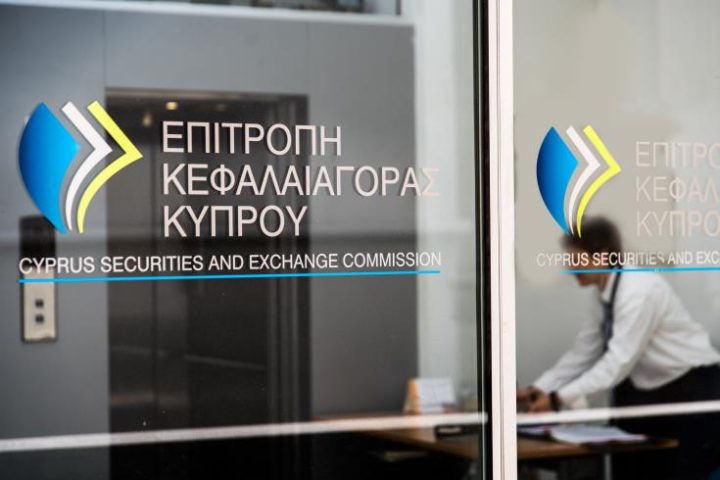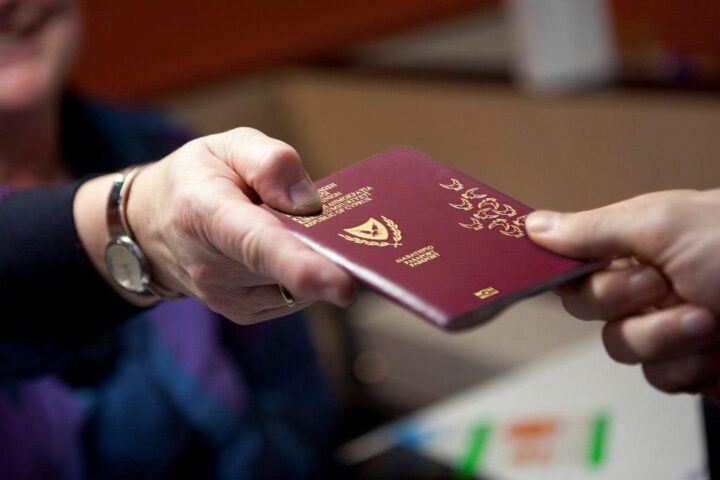Massive abuse of system led to thousands of passports being issued illegally
Demetra Kalogerou was the longest serving Chair at the Cyprus Securities and Exchange Commission with a reputation for building new markets, but also being tough when integrity was at stake.
Her impressive record in reshaping the financial industry at a time when the banking scandal wreaked havoc with billions in losses, she helped build resilience and prosperity.
She also took a leading part in the independent investigation committee that was set up three years ago following the Al Jazeera investigation of the Cyprus Citizenship by Investment programme which uncovered how massive abuses of the system led to thousands of passports being issued illegally, even to some of the most notorious criminals in the world.
Now as the ‘Cyprus Confidential’ files continue to unfold by exposing the Putin regime’s practices to undermine the West, many have argued that Cyprus’ reputation has taken a new hit. President Christodoulides was particularly alarmed by the new revelations and vowed to take strong action to defend the country’s reputation.
We discussed with Kalogerou these issues and how the country can emerge from this new scandal. Having comprehensive views from experts of such calibre can only help restore trust and confidence in the system. Thankfully she did not minced her words.
What went wrong that resulted in the spectacular failure of the citizenship programme, especially after the government introduced new tougher regulations.
Cyprus’s heavy reliance on the Cyprus Investment Program (CIP) for financial recovery following the banking crisis in 2013 has brought attention to a conflict between economic interest and compliance with broader EU regulations and ethical conduct. Specifically, this conflict arises from the recent anti money laundering (AML) and combating the financing of terrorism (CFT) regulations that were transposed to our national legislation obligating the supervised entities to adhere to them. While the programme has generated significant revenue for our economy, it was perceived as exploiting EU membership for financial gain, potentially jeopardising the integrity of the financial system of the EU.
The OCCRP investigation at the beginning of 2019, followed by the Al Jazeera investigation in August 2020 known as “The Cyprus Papers” revealed that numerous dubious applicants, including individuals with criminal background were granted Cypriot citizenship and subsequently became EU citizens. This led the government and the Attorney General to announce independent investigations into the programme.
These investigations revealed that the CIP had been operating from 2007- 2020 with significant gaps and shortcomings. These deficiencies were attributed to an inadequate legislative framework that allowed questionable individuals to obtain citizenship often in exchange for funds of unknown origin.
In essence, certain service providers, primarily lawyers and accountants, but also other fiduciaries were not playing by the rules of AML and KYC. That’s because the acquisition of citizenship was not a regulated service at the time.
The investigation revealed that in many cases these clients were also provided with administration services that do fall under the AML rules. Therefore, the service providers should have conducted thorough checks on the funds’ origins and performed KYC procedures on the investors before submitting the applications to the Ministry of Interior as the first line of defense.
Lacked tools
However, both the Ministries of Interior and Finance as a second line of defense, lacked the necessary tools, systems, personnel and experience to effectively supervise the programme. Instead, they relied heavily on information provided by the service providers, the banks and other government bodies, which proved to be grossly inadequate for conducting comprehensive background checks.
Moreover, it was discovered that the ministries failed to take action even when they possessed disqualifying information about certain investors indicating a lack of due diligence and oversight in the programme. The banks on the other hand, were more focused on their relationships with the local developers and service providers, neglecting to properly monitor clients’ accounts or report suspicious transactions.
Lastly, the final approval of an investor’s citizenship was carried out by the Cabinet, serving as a third line of defense. Unfortunately, this approval process seemed to be almost automatic, without any questioning or any evaluation of potential conflicts of interest. The findings from the investigative committees emphasised the possibility of political, supervisory, administrative, and criminal responsibilities and made several recommendations.
In response to these findings, the government has implemented a series of actions including the establishment of a special committee responsible for revoking passports of investors with criminal records, those wanted by Europol or Interpol, individuals subject to sanctions, or those with tarnished reputation. Up to now the government has revoked a total of 222 passports, which includes 63 investors and 159 of their relatives.
Additionally, authorities like the Unit for Combating Money Laundering, the tax department, and all the competent authorities responsible for the oversight of the legal or otherwise regulated entities have been urged to enhance their supervision and thoroughly investigate all the parties involved, including the service providers/promoters and other parties associated with the scheme, for any potential wrongdoing or violations of AML/CFT laws and sanctions.
Furthermore, the findings of these investigations were submitted to the Attorney General’s office for further examination of possible criminal offenses. The Attorney General has initiated legal action against serious cases of the CIP programme. It is important to note that legal processes, including trials and potential convictions can be time-consuming, especially in complex cases like those associated with this scheme.
The government officially terminated the CIP programme in August 2020 following the Al Jazeera investigation which also led to the resignation of the Speaker of the House and two more members of parliament.
Has the reputation of Cyprus been tarnished and if so, to what extent?
The Al Jazeera investigation significantly tarnished the country’s reputation to a great extent by associating it with financial crime and highlighted a lack of due diligence in granting Cypriot passports, often with political interference. Unfortunately, this exposure led to reputational damage not just for Cyprus, but also for the European Union given that the Cyprus citizenship provided access to the EU.
Moreover, recently another investigation by the international consortium of investigative journalists (ICIJ) called the “Cyprus confidential” revealed how Cyprus has facilitated transactions and services to evade sanctions and channel payments through a limited number of service providers. Again, these revelations have the potential to further damage Cyprus’ global financial reputation, portraying it as a haven for illicit financial activities and sanctions evasion.
Increased scrutiny
Cyprus might also face increased scrutiny from regulatory bodies including the EU potentially leading to stricter financial regulations and closer oversight.
In response to this report, the government announced that financial crime experts will conduct investigations and that any infringements of the law will not be tolerated by anyone stressing the importance of Cyprus’ reputation and credibility.
Is our country really a state that can easily launder money?
Just like in the rest of Europe, there is the appropriate European framework and the necessary mechanism and tools to combat money laundering and terrorist financing.
Over the last seven years, Cyprus has implemented numerous reforms and remains fully aligned with all the European regulations on AML/CFT while also adhering to policies and recommendations of the financial action task force FATF.
Additionally, all competent authorities have strengthened their supervision and enforcement of their supervised entities
The key findings of the Moneyval Report in February 2020 acknowledged the progress made by Cyprus in implementing an enhanced AML/CFT framework, thereby supporting the international community’s fight against money laundering and terrorist financing. The positive assessment is a vote of confidence that Cyprus is heading in the right direction. However, it is essential to recognise that there is always room for improvement, something that we need to address on an ongoing basis.
So, what should be done to avoid scandals of similar nature in the future and help Cyprus build a good reputation as a sound investment destination bearing in mind that our banking system is still reeling from its own failure a decade ago?
A series of steps should be taken in that direction with government initiative where such action is warranted from past experience and global regulatory developments.
- Continuous improvement of regulatory frameworks is crucial to align with international standards particularly those set by the FATF. Timely transposition of European AML/CFT regulations (6th AML directive) into national legislation as well as a commitment to implement the recommendations provided in Moneyval’s latest assessment report.
- Accelerating investigations and ensuring that their findings can help build strong anti-money laundering cases with good chances of conviction. Delivering harsh verdicts in such cases can clearly serve as the best deterrent.
- Improving transparency in financial transactions and corporate ownership is essential for detecting illicit activities. This includes enforcing the AML laws around beneficial ownership and monitoring high risk sectors more closely.
- Establishing an independent supervisory authority as announced by the government, so that the administrative service providers can further enhance the supervision of this sector. The allocation of adequate resources toward this objective is important to ensure effective oversight and enforcement. In 2019/2020 while I was still Chair at CySEC, I submitted to the previous government a proposal for the creation of such an independent authority. I also suggested that CySEC could undertake this role if given the power to monitor the fiduciary industry in terms of AML. Had this proposal being adopted we could have prevented a great deal of damage and defended the credibility and trust of the system.
- Engaging in greater international cooperation and information sharing can aid in the fight against cross-border financial crimes.
- Continuously assessing the effectiveness of measures in place and being willing to adopt to new threats and changes in the global financial landscape.
- Most importantly, promoting a culture of ethics and integrity within the financial sector and among public officials can help prevent corruption and financial crimes.
- Finally, implementing an effective communication strategy is crucial to improve Cyprus’ image abroad. Proactive and transparent communication about the efforts and improvements made in addressing AML/CFT issues can help rebuild trust on an international scale.
Michael Olympios is Editorial Consultant for the Financial Mirror










